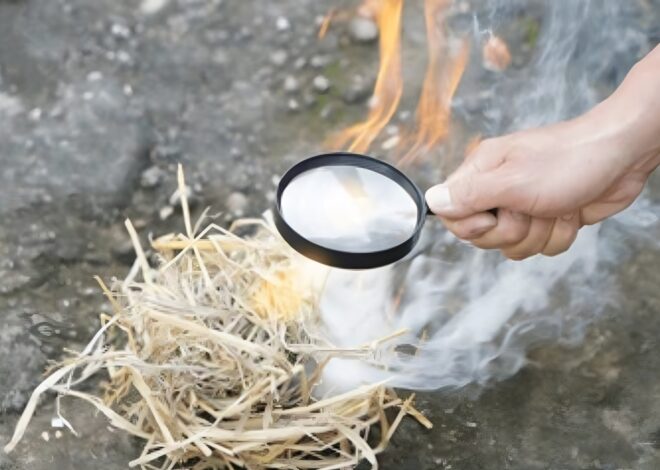
How To Survive A Car Crash
Buckle up, because we’re about to dive into a crucial topic that could potentially save your life: How To Survive A Car Crash. No one ever wants to imagine themselves in such a situation, but being prepared and knowing what to do can make all the difference between life and death.
So, let’s equip ourselves with essential knowledge on how to navigate through this terrifying scenario with confidence and resilience.
Understanding the Importance of Preparedness
Picture this: you’re cruising down the road, music playing, the sun shining through your windshield. But within seconds, everything changes. A car crash can happen in an instant, catching you off guard and leaving you vulnerable. This is where preparedness comes into play – it’s not about expecting the worst, but rather being ready for the unexpected.
Being prepared means more than just having a first aid kit in your trunk. It involves understanding basic safety measures like wearing seat belts, adjusting mirrors properly, and maintaining your vehicle regularly. Additionally, knowing what to do before and after a crash can significantly impact the outcome of such a traumatic event.
By taking proactive steps to educate yourself on car safety and emergency protocols, you’re not only protecting yourself but also those around you. Remember: being prepared could mean all the difference between walking away unscathed or facing life-altering consequences.
Knowing What to Do Before and During a Car Crash
Picture yourself behind the wheel, cruising down the road on a sunny day. Before you hit the road, ensure your vehicle is well-maintained: check brakes, lights, and tires regularly. Familiarize yourself with your car’s safety features and how to use them effectively in an emergency.
During a crash or near-collision scenario, stay calm and focused. Keep both hands on the steering wheel and avoid sudden movements that could escalate the situation. If you sense trouble ahead, slow down gradually rather than slamming on the brakes.
Always wear your seatbelt – it’s not just a legal requirement but a lifesaver in accidents. Make sure all passengers are buckled up too. Be aware of your surroundings; anticipate potential hazards like distracted drivers or adverse weather conditions.
Stay vigilant while driving; avoid distractions like texting or adjusting music while on the move. Remember that safe driving practices can significantly reduce your risk of being involved in a crash.
The Dos and Don’ts After a Car Crash
After a car crash, it’s crucial to stay calm and assess the situation. Check for injuries and ensure everyone is safe before doing anything else. Do call emergency services immediately if there are any injuries or significant damage.
Don’t admit fault at the scene, as this can impact insurance claims later on. Exchange information with the other party involved but avoid discussing details of the accident extensively. Do take photos of the scene, including vehicle damage and road conditions.
This documentation can be valuable for insurance purposes and legal matters. Don’t forget to seek medical attention even if you feel fine initially. Some injuries may not be apparent right away. Do report the accident to your insurance company promptly to start the claims process efficiently.
Keep all relevant documents and records related to the crash organized for future reference.
Common Injuries and How to Treat Them
In the unfortunate event of a car crash, it’s essential to be aware of the common injuries that may occur. Whiplash is a prevalent injury due to sudden jerking movements during impact. Symptoms include neck stiffness and pain, which can be treated with rest, ice packs, and gentle exercises.
Another common injury is soft tissue damage like bruises or sprains. Applying ice and elevating the affected area can help reduce swelling and discomfort. Fractures are also possible in severe crashes, requiring immediate medical attention for proper treatment.
Head injuries such as concussions should not be taken lightly; seek medical attention if you experience symptoms like dizziness or confusion after a crash. Back injuries can range from muscle strains to spinal cord damage – it’s crucial to follow medical advice carefully for recovery.
Remember, always prioritize your health and well-being following a car crash by seeking professional medical help promptly for any injuries sustained.
Seeking Legal Help After a Car Crash
After a car crash, seeking legal help is crucial to protect your rights and navigate the complexities of insurance claims. A skilled attorney can assist you in gathering evidence, communicating with insurance companies, and ensuring you receive fair compensation for your injuries and damages.
When looking for legal representation, consider factors like experience in handling car accident cases, success rates, and client reviews. It’s important to choose a lawyer who will prioritize your best interests and fight for the maximum settlement possible.
Legal proceedings after a car crash can be overwhelming, but having a knowledgeable attorney by your side can provide peace of mind during this challenging time. Don’t hesitate to reach out to a trusted law firm specializing in personal injury cases to discuss your options and take the necessary steps towards justice.
Coping with the Emotional & Mental Impact of a Car Crash
Coping with the emotional and mental impact of a car crash can be daunting, but it’s essential to prioritize your well-being in the aftermath. Allow yourself to process your emotions without judgment – it’s okay to feel scared, anxious, or overwhelmed. Talking to loved ones or a therapist can help you navigate these feelings.
Engaging in self-care activities like meditation, exercise, or journaling can also aid in managing stress and anxiety levels. Additionally, practicing mindfulness techniques can ground you in the present moment and alleviate racing thoughts about the accident.
It’s crucial to give yourself time to heal both physically and emotionally; don’t rush the recovery process. Surround yourself with supportive people who understand what you’re going through and offer compassion without pressure.
Remember that seeking professional help is not a sign of weakness but a proactive step towards healing. Therapy sessions or support groups specialized in trauma can provide valuable tools for processing your experience and moving forward positively.
Conclusion
Being prepared and knowing what to do before, during, and after a car crash can greatly increase your chances of survival and minimize injuries. Remember to stay calm, assess the situation, prioritize safety, seek medical attention promptly, and consider legal assistance if necessary.
Coping with the emotional aftermath is also crucial for your overall well-being. By following these tips and guidelines, you can navigate through a car crash more effectively and protect yourself both physically and emotionally. Stay safe on the roads!



